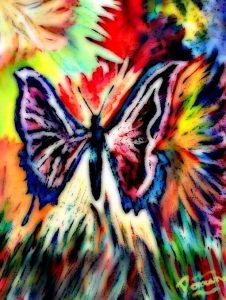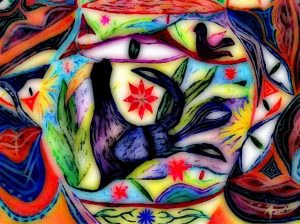
by Donovan Cleckley
When you are in a place in which you feel disempowered, you realize that disempowerment is wrong. Through an understanding of disempowerment, you realize that empowerment for all people allows for the recomposition of what you once perceived as normal disempowerment, taking the very reality of oppression for granted until you are awakened to consciousness.
What Feminism Means to Me
Like Julia Wood in Gendered Lives, my definition of feminism centers itself on fighting for equality for all people, combating systems of oppression, and fighting environmental injustice; however, I further emphasize the concept of intersectionality when discussing my particular definition of feminism. By “intersectionality,” I mean the ways that our social categories such as race, gender, class, sexual identity, religion, nationality, ability, and age intersect to affect and shape not only our identities, but also our lived experiences. Feminism for me means more than fighting forms of oppression; it also means positively recognizing human differences, understanding them, and seeking negotiation and common ground among other people.
For example, as a gay man, I think bodily objectification presents a shared nemesis for both queer individuals and women in our sexist and heterosexist society. Queer individuals are oftentimes over-sexualized just as women are oftentimes over-sexualized, and lesbians experience an intensified intersection of this combined over-sexualization (for example, the male gaze dehumanizes lesbian couples into objects of heterosexual male fantasies). Heterocentric, androcentric attitudes dehumanize queer individuals and women into sex objects, creatures lacking any identity except that which is given to them. Given this example, a gay male like me fights alongside women because bodily objectification affects not only women, but also the queer community. While I identify and recognize my differences from women, I also ally with them to fight against the oppressive nature of interlocking sexism and heterosexism.
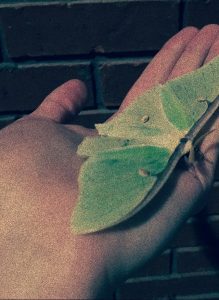
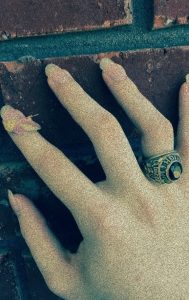
Black feminist thought and readings from Audre Lorde’s Sister Outsider (1984) specifically shape my views on feminism (essays such as “The Transformation of Silence into Language and Action,” “Age, Race, Class, and Sex: Women Redefining Difference,” and “The Uses of Anger: Women Responding to Racism”). I know that my specific place in society is interconnected with the places of other people, that my privileges and my differences interconnect with the lived experiences of other people. I also understand that, as a feminist in the twenty-first century, I should never pick and choose battles against oppressive forces because of the interconnected nature of human experiences. In one of her pieces titled “There Is No Hierarchy of Oppression,” Lorde writes, “And I cannot choose between the fronts upon which I must battle these forces of discrimination, wherever they appear to destroy me. And when they appear to destroy me, it will not be long before they appear to destroy you too” (I Am Your Sister 220). Intersectionality and interconnectedness define my idea of feminism because I think, as human beings, we all possess the abilities to promote freedom and liberty for those around us. As a gay male with parents born in 1953 Alabama, I refuse to sit and wait for freedom and liberty in my own household because I can use my voice to change the world around the household. In this way, intersectionality and interconnectedness mean so much to me in understanding other people in ways that people sometimes never try to understand me. I furthermore think both recognition and negotiation regarding our differences benefit our views of equality within the spectrum of feminism. As a feminist, I believe we achieve liberation with our voices when we shatter the silences frosting us over, when we defrost the coldness that impairs us from speaking up against the students mocking the gay kid in 9th grade when he cried in his best friend’s arms because he felt the weight of his unworthiness on his shoulders.
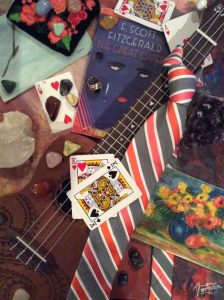
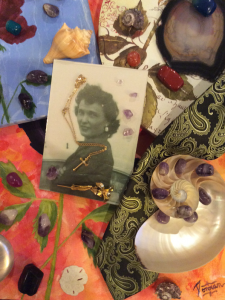
Being My Self, but Becoming Their Fag:
Comfortable with Being Uncomfortable
I am a European-American, somewhat young, homosexual (even if this term medicalizes sexuality), somewhat spiritual, middle-class male who’s totally single. I grew up in a relatively small home in Clanton, Alabama and attended school in rural areas from childhood to high school. My parents were born in 1953, so an enormous generation gap exists in my household with me being born on September 22, 1996 (the same day as the release of Marilyn Manson’s “The Beautiful People” from his album Antichrist Superstar). My experiences at these schools in the Deep South greatly impacted my early questioning of gender. Performing gender in a more feminine way, I also played the viable contrast to other males’ presentations of masculinity. I think these experiences shaped my reasoning in taking this course, and I think that, because other males made me their feminine object, their ideal contrast, their “fag,” I think my perceptions will remain open regarding topics in Gendered Lives. I’m comfortable with being uncomfortable by now.
As a young white male, I know I possess privileges that afford me unearned advantages not held by people of color or by women (or by the elderly in the context of ageism). On the other hand, my sexual identity and my vague critical spirituality disadvantage me in the highly Southern Baptist-dominated state of Alabama. Regarding my areas of privilege, I think they naturally obscured the disadvantages of others until, like Wood describes in her experience, I began opening my eyes after I read Azar Nafisi’s Reading Lolita in Tehran and Zora Neale Hurston’s Their Eyes Were Watching God (alongside her essay “How It Feels to Be Colored Me”) during my junior year of high school and The Awakening by Kate Chopin during my senior year of high school, with my AP English Literature teacher telling me that girls related more to The Awakening than boys did because Chopin’s literature was more for girls than for boys. Little did the female teacher consider that men awaken too, especially gay men attending rural Alabamian high schools.
I always used to talk about literature and social issues with my friend Jordan Clark who now studies Public Health at the University of Alabama at Birmingham (UAB). I came out to her during my freshman year of high school, and we were already best friends, so she still loved me. We both developed in spite of our surroundings, and talking with a woman always helped me try to understand my contrasting experience as a gay male from the experiences of women. Whenever she hurt, I hugged her and tried to always make her feel better. I recently flipped out when her mother told her that she couldn’t come home for Christmas dinner because Jordan’s boyfriend is black. Needless to say, I fight for her and her boyfriend. Friendship with Jordan saved me in high school from total shame and torment over my femininity and visible queerness.
While fighting for equality for everyone and fighting all forms of oppression, I also fight for one day where the gay kid in 9th grade can write a love letter to a cute football player without an entire class of students making fun of him because being gay is supposedly shameful, because being gay is supposedly worthy of senseless stigma.
